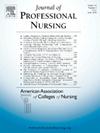Clinical educators and non-native English-speaking nursing students in first clinical placements: A qualitative exploration
IF 2.9
3区 医学
Q1 NURSING
引用次数: 0
Abstract
Background
Clinical experiences are a part of a university nursing program plan of study in which nursing students may apply the skills they have learned in their classes to a clinical environment. In addition to trying to adapt to a new social, working and educational culture, first-year non-native English-speaking international nursing students must also work around language barriers, familiarising themselves with new vocabulary as well as medical terminology. In the clinical setting, educators work closely with students to provide guidance and support, assess and evaluate students' learning and practices.
Purpose
This study aims to explore the experiences of non-native English-speaking international nursing students' and clinical educators during their first clinical placement in Victoria, Australia.
Methods
A qualitative descriptive approach was used, and data were collected through semi-structured interviews with 10 non-native English-speaking international nursing students and 11 clinical educators in Australia.
Results
Four main themes emerged from the experiences of non-native English-speaking international nursing students and clinical educators. For students, the themes were Challenges and Concerns, and Reflections. For clinical educators, the themes centered on Perceptions of Students' Challenges, and Suggestions for Improvement.
Conclusions
These themes highlight ongoing issues and challenges for non-native English-speaking nursing students and clinical educators during clinical placements. The findings emphasise the need for clear clinical assessment requirements to support international student learning and performance. To enhance their placement experiences, students should improve their English proficiency and communication skills beforehand, which can positively impact their clinical learning outcomes.
临床教育工作者和非英语母语护理学生在第一次临床实习:质的探索
临床经验是大学护理课程计划的一部分,护理学生可以将他们在课堂上学到的技能应用到临床环境中。除了努力适应新的社会、工作和教育文化,非英语母语的大一国际护理学生还必须克服语言障碍,熟悉新词汇和医学术语。在临床环境中,教育工作者与学生密切合作,提供指导和支持,评估和评估学生的学习和实践。目的本研究旨在探讨非英语为母语的国际护理学生和临床教育工作者在澳大利亚维多利亚州的首次临床实习经历。方法采用定性描述方法,对10名非英语母语的国际护理学生和11名澳大利亚临床教育工作者进行半结构化访谈。结果非英语为母语的国际护理学生和临床教育工作者的经历产生了四个主要主题。对学生来说,主题是挑战和关注,以及反思。对于临床教育工作者,主题集中在学生挑战的感知和改进建议。结论:这些主题突出了非英语母语护理学生和临床教育工作者在临床实习中面临的持续问题和挑战。研究结果强调需要明确的临床评估要求,以支持国际学生的学习和表现。为了提高实习经验,学生应该提前提高英语水平和沟通能力,这对他们的临床学习效果有积极的影响。
本文章由计算机程序翻译,如有差异,请以英文原文为准。
求助全文
约1分钟内获得全文
求助全文
来源期刊
CiteScore
4.80
自引率
8.00%
发文量
153
审稿时长
52 days
期刊介绍:
The Journal will accept articles that focus on baccalaureate and higher degree nursing education, educational research, policy related to education, and education and practice partnerships. Reports of original work, research, reviews, insightful descriptions, and policy papers focusing on baccalaureate and graduate nursing education will be published.

 求助内容:
求助内容: 应助结果提醒方式:
应助结果提醒方式:


